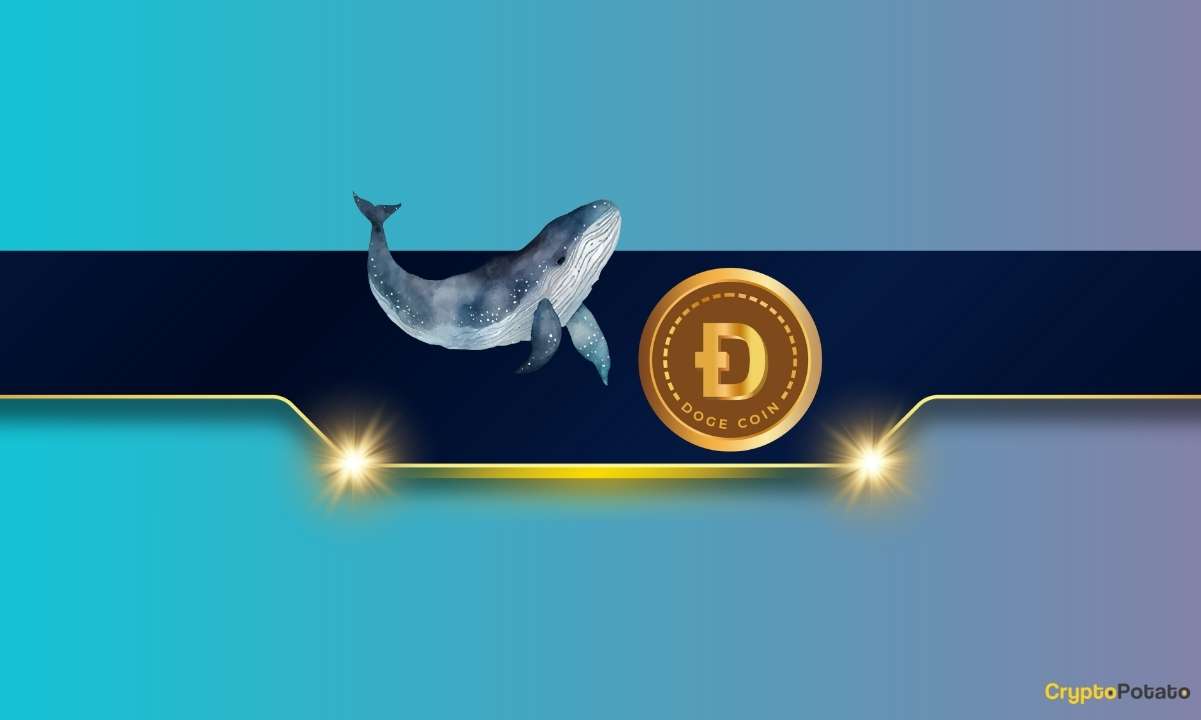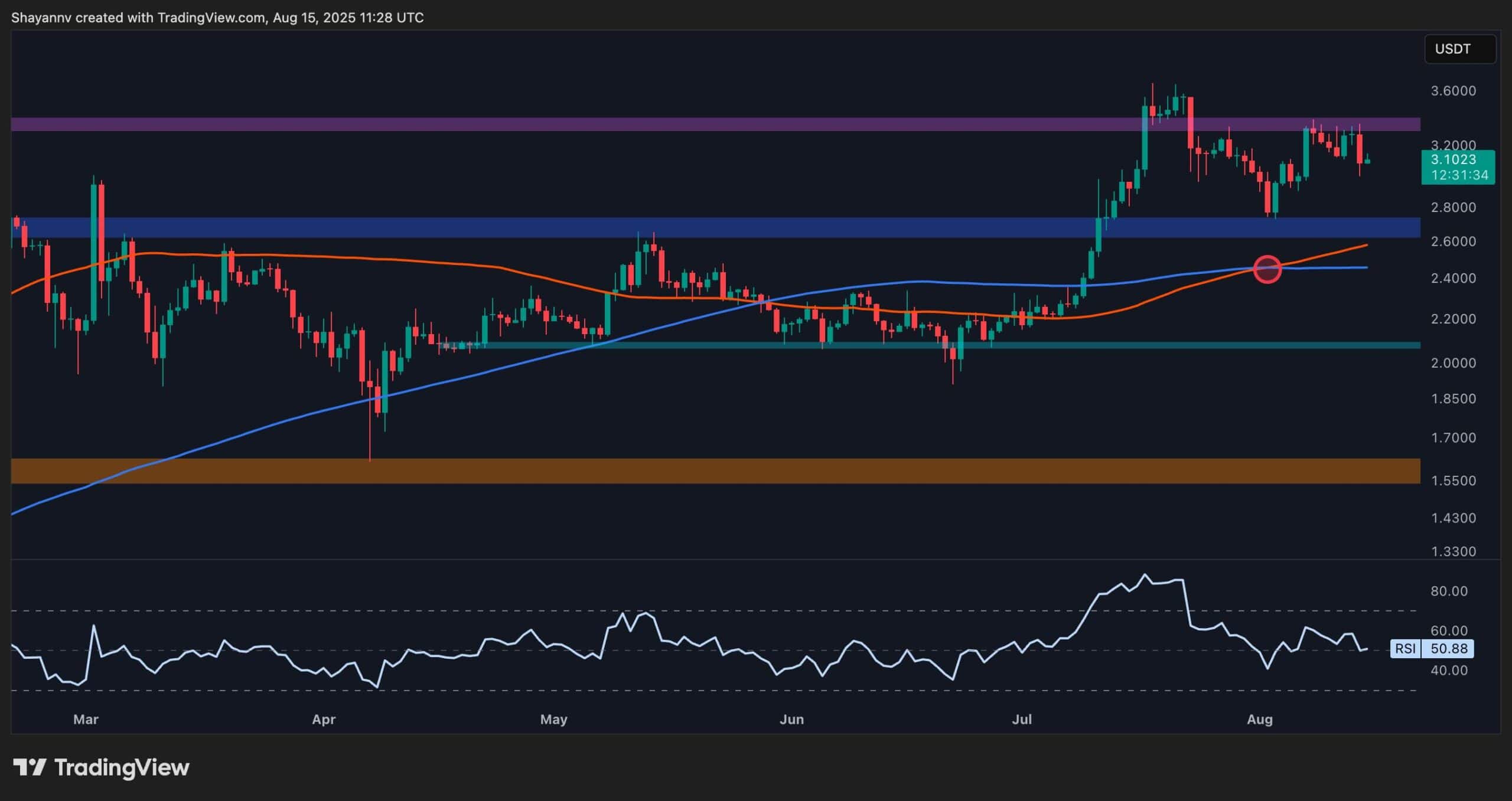Cryptocurrency
Exploring the future of AI: The power of decentralization

The field of artificial intelligence (AI) is taking the world by storm, but many people have found themselves looking up at the sky, wondering where all the rain came from.
Those who didn’t realize the place AI already has held in our everyday lives are having a hard time understanding what further advancements mean for society as a whole.
Wrapping your head around the technology itself is a challenge for most, but it gets even more complicated when broken down. No longer are people just using the umbrella term artificial intelligence — they are saying narrow AI, superintelligence and artificial general intelligence (AGI). Companies are using the terms machine learning and deep learning when explaining the technologies they have incorporated to streamline their business practices.
The push to advance AI started long before the conversation about it did, and those advancements have benefited businesses across industries. The potential for what the future holds with this technology has been particularly enthralling for those in the Web3 space.
Irina Jadallah, co-founder of Ticketmeta — a nonfungible token-based ticketing solution and decentralized streaming service for sports events — told Cointelegraph:
“AI is fast becoming the biggest news of the century. From ChatGPT to Siri to Alexa and a million other AI apps and tools, virtually everything around us is influenced by AI, including the metaverse […] It has the potential to revolutionize the way we engage with and enjoy virtual worlds by facilitating more natural and intuitive interactions between users and virtual surroundings.”
But the impact of AI does not stop with the metaverse; it has already been proven that AI has the potential to revolutionize various fields, from marketing to finance. As exciting as it may be, the popularity of this technology, as Jadallah pointed out, now poses a rather significant question.
As it becomes more advanced and more desired by the public, it also becomes more expensive, enhancing the risk of centralization. This collective concern has created a new buzzword — decentralized AI.
Centralization vs. decentralization
As with all things, centralization is not inherently a bad thing, but it does pose some issues where AI is concerned.
When only a small number of organizations can afford to use the technology, they would be able to control how the technology advances, risking it becoming everything many people fear it to be.
Recent: Chinese police vs. Web3, blockchain centralization continues: Asia Express
This concern of centralized AI is one that many in the space are already discussing and working against. Marcello Mari, founder of SingularityDAO — an asset management company that uses AI for trading strategies — told Cointelegraph:
“If we keep developing artificial intelligence behind closed doors — by corporations that use it for marketing, military or centralized finance, which basically means killing people more efficiently, selling you stuff you don’t need, and making the rich richer — then the next artificial intelligence will probably reflect those same kinds of values, right?”
In contrast, decentralized AI could allow individuals to have more of a say in the products they use while having a broader range of models to choose from.
“This is why we even founded our company back in 2017 because it’s very important that we start thinking now about what the next AGI or superhuman intelligence will look like,” said Mari. “In order to make it benevolent, you want to have a decentralized layer so that the community can actually influence and be comfortable with the development of AGI.”
Decentralized AI could incorporate blockchain technology, which already has a reputation for security and transparency.
“Blockchain technology is a safe and open system for monitoring information and ensuring it stays unaltered,” said Anna Ivanchenko, co-founder and CEO of Ticketmeta. “It’s used to create credibility and trust.”
People have a preference for public blockchains because they are often governed by the community and not a central authority. Code becomes law and adds a level of trustlessness that is not seen in other industries. According to CoinGecko, there are already more than 50 blockchain-based AI companies, with many people expecting this number to grow exponentially over the coming years. Companies such as Render, Fetch.ai and SingularityNET have led the charge in 2023.
Mari’s SingularityDAO is democratically governed by the community, who can have input into how their AI-DeFi model operates. People having a say is the main differentiating factor between centralized and decentralized AI. With centralized AI, the average user has negligible influence over how the AI models function.
Encouraging the community to take part in the development and direction of AI, allowing them to influence where it goes and what it does, will likely play a significant role in easing their concerns. Decentralized AI could very well make people more comfortable with AI as a whole, easing the transition of the technology into one that we use every day.
Of course, it’s never easy with new tech, and decentralized AI is no exception. It shares a common challenge with centralized AI, namely the “black box” problem, which involves a lack of transparency in how AI models operate and reach conclusions.

This opacity can understandably breed distrust. However, as Cointelegraph recently highlighted, there is hope: Explainable AI (XAI) and open-source models are emerging as promising avenues to address the black box issue in decentralized AI.
Benefits of decentralized AI
Decentralized AI enhances security in several ways. For example, by leveraging blockchain technology, it offers encryption and immutability, ensuring that data remains both secure and unchanged.
It can proactively detect anomalies or suspicious patterns in data, acting as an early warning system against potential breaches. The need for decentralization arises from its inherent design: Instead of having a single point of vulnerability, data is distributed across multiple nodes, making unauthorized access or tampering significantly more challenging.
Recent: AI can be a ‘creative amplifier’ — Grammy chief exec Harvey Mason Jr.
Decentralized AI is championing the cause of transparency and trust in a world that’s becoming more data-driven by the day. Traditional AI systems often suffer from opaque decision-making processes, raising trust and accountability issues. However, decentralized AI systems, like SingularityNET, stand out with their inherent transparency, recording every transaction and decision on the blockchain.
Despite still being in its infancy, decentralized AI provides hope of solving the aforementioned “black box” issue because of the inherent transparency that comes with blockchain technology.
Cryptocurrency
Ethereum Foundation, Whales, and Hackers: What’s Driving the ETH Sell-Off?

TL;DR
- Whales, hackers, and the Ethereum Foundation wallets moved over $500M in ETH through large sales and withdrawals.
- Ethereum transfers rose to 4.6M ETH, nearing the monthly high of 5.2M recorded in July.
- Staking inflows hit 247,900 ETH, the highest in a month, locking more supply from trading.
Large Withdrawals and Whale Activity
Ethereum (ETH) has seen heavy movement from major wallets over the past few days. On-chain data from Lookonchain shows a newly created wallet pulled 17,591 ETH, worth $81.62 million, from Kraken in just two hours.
Over three days, two new wallets withdrew a combined 71,025 ETH, valued at $330 million, from the exchange.
One of these wallets, address 0x2A92, has withdrawn 53,434 ETH, worth $242.34 million, in two days. This includes a recent purchase of 30,069 ETH, valued at $138.46 million, during a market drop.
Major ETH Holders Offload Millions Amid Price Rally
In contrast, several separate entities have been disposing of some ETH holdings. A wallet tied to a hacker address 0x17E0 sold 4,958 ETH for $22.13 million at $4,463, securing a profit of $9.75 million. Earlier this year, the same address sold 12,282 ETH at $1,932 and later bought back part of the amount at higher prices.
A different whale sold 20,600 ETH for $96.55 million over the past two days, generating a profit of more than $26 million after holding the position for nine months.
Meanwhile, an Ethereum Foundation-linked wallet, 0xF39d, sold 6,194 ETH worth $28.36 million in the last three days at an average price of $4,578.
Recent sales from the same wallet included an additional 1,100 ETH and 1,695 ETH for over $12.7 million combined.
The #EthereumFoundation-linked wallet(0xF39d) sold another 1,300 $ETH($5.87M) at $4,518 ~11 hours ago.
Over the past 3 days, this wallet has sold a total of 6,194 $ETH($28.36M) at an average price of $4,578.https://t.co/4hfCWymHVG pic.twitter.com/ErUyEY8SJy
— Lookonchain (@lookonchain) August 15, 2025
Network Activity on the Rise
CryptoQuant data shows Ethereum’s total tokens transferred have been climbing since August 9. After ranging between 1 million and 3 million ETH through late July and early August, transfers have risen to 4.6 million ETH, approaching the monthly high of 5.2 million recorded in mid-July. This increase has occurred alongside a price rally from about $3,400 to $4,600.
Interestingly, staking inflows generally stayed between 20,000 and 80,000 ETH per day over the past month. On August 14, inflows jumped to 247,900 ETH, the highest in the period.
At the time, ETH was trading near $4,600. Large staking deposits reduce the amount of ETH available for immediate trading, as staked coins are locked for a set period.
In the meantime, ETH trades at $4,647 with a 24-hour volume of $68.25 billion, down 2% on the day but up 19% over the week.
Binance Free $600 (CryptoPotato Exclusive): Use this link to register a new account and receive $600 exclusive welcome offer on Binance (full details).
LIMITED OFFER for CryptoPotato readers at Bybit: Use this link to register and open a $500 FREE position on any coin!
Cryptocurrency
Massive DOGE Whale Activity Hints at $1 Breakout

TL;DR
- Whales bought two billion DOGE this week, lifting their combined holdings to 27.6 billion coins.
- A single 900M DOGE transfer worth $208M to Binance drew attention to large exchange movements.
- DOGE broke key resistance, with momentum building for a possible push toward the $1 price mark.
Price and Market Moves
Dogecoin (DOGE) traded at $0.23 at press time, slipping 4% over the past day but still showing a 2% gain for the week. Daily turnover came in at about $6.18 billion.
Meanwhile, the broader crypto market saw over $1 billion in liquidations. Hotter-than-expected US Producer Price Index data pushed traders to scale back expectations of a near-term Federal Reserve rate cut. DOGE had roughly 290,500 coins liquidated during the sell-off.
On the two-week chart, analyst Trader Tardigrade notes that DOGE has cleared a downward-sloping resistance line after completing what appears to be a “wave V” in an Elliott Wave sequence. Similar setups in the past, where prolonged declines stayed within falling channels before breaking higher, have been followed by sharp rallies.
$Doge/2-week#Dogecoin is gaining strong momentum to surge above $1 pic.twitter.com/TuSEKr19nv
— Trader Tardigrade (@TATrader_Alan) August 15, 2025
Momentum gauges are also turning up. The Stochastic RSI, which had dropped into oversold territory, is now heading higher. Previous reversals from this zone have coincided with sustained upward moves. The current formation points to a possible run that could carry DOGE past the $1 mark.
Heavy Whale Buying and Large Transfers
As reported by CryptoPotato, blockchain data shows large investors have added two billion DOGE in the past week, spending just under $500 million. That brings their holdings to about 27.6 billion coins, or 18% of the supply. The buying streak has prompted speculation within the community.
Recently, Whale Alert flagged a 900 million DOGE transfer worth about $208 million into Binance. The tracking indicates that it originated from a wallet connected to the exchange, likely as an internal activity. The address involved holds 2.88 billion DOGE, one of the largest balances on the network.
Ali Martinez also reports that transactions above $1 million reached a one-month high, with activity building since early August and peaking as DOGE traded at $0.25.
Whales are back! Dogecoin $DOGE activity at a 1-month high. pic.twitter.com/C83Pv68mCt
— Ali (@ali_charts) August 14, 2025
Sentiment Building
Analyst Gordon described the current setup as “a nice bit of consolidation” before a potential breakout, adding,
“This will be one of the first coins normies FLOCK to & the pump will be MASSIVE.”
With whale accumulation rising, high-value transfers increasing, and a bullish technical pattern in play, DOGE is positioned for a potential push toward $1 if momentum holds.
Binance Free $600 (CryptoPotato Exclusive): Use this link to register a new account and receive $600 exclusive welcome offer on Binance (full details).
LIMITED OFFER for CryptoPotato readers at Bybit: Use this link to register and open a $500 FREE position on any coin!
Cryptocurrency
Ripple Price Analysis: XRP at Risk as Key Support Levels Could Trigger Sharp Drop

XRP has recently entered a consolidation phase after a strong rally earlier this summer, with the price action now hovering around key resistance levels on both its USDT and BTC pairs. Yet, while momentum has slowed, the charts still indicate a generally bullish structure, with multiple key support levels remaining firmly in place.
Technical Analysis
By ShayanMarkets
The USDT Pair
On the XRP/USDT daily chart, the price is currently trading near the $3.10 mark, facing a strong resistance zone around $3.40. This follows a breakout above the $2.70 range in July, which has now flipped into a support area.
Both the 100-day and 200-day moving averages are also trending upward and recently formed a bullish crossover around $2.45, reinforcing the medium-term bullish sentiment. If the $3.40 resistance breaks, a push toward the critical $4.00 range becomes likely.
However, the RSI hovering near the neutral 50 level suggests a lack of strong momentum for now, meaning a short-term pullback into the $2.80 support zone is still possible.
This zone will be key for maintaining the bullish structure. Losing it could open the door for a deeper correction toward the 200-day moving average located around the $2.40 mark. Yet, as long as the price stays above the moving averages, the broader trend remains bullish.
The BTC Pair
Looking at the XRP/BTC chart, the pair has recently pulled back after hitting the 3,000 SAT resistance, with the price currently around 2,600 SAT.
This follows a clean breakout above the long-term descending channel and a successful retest of its upper boundary, which coincided with the 200-day moving average and the 2,400 SAT support zone. This confluence remains a key bullish technical factor, as holding above it could attract renewed buying pressure.
That said, RSI levels around 48 show that momentum has cooled after the sharp July rally, meaning XRP may continue ranging between 2,400 SAT and 3,000 SAT in the near term. A decisive close above 3,000 SAT would likely open the path to the 3,400 SAT zone, while losing 2,400 SAT could shift the bias back toward 2,000 SAT support. For now, the structure still favors the bulls as long as higher lows remain intact.
Binance Free $600 (CryptoPotato Exclusive): Use this link to register a new account and receive $600 exclusive welcome offer on Binance (full details).
LIMITED OFFER for CryptoPotato readers at Bybit: Use this link to register and open a $500 FREE position on any coin!
Disclaimer: Information found on CryptoPotato is those of writers quoted. It does not represent the opinions of CryptoPotato on whether to buy, sell, or hold any investments. You are advised to conduct your own research before making any investment decisions. Use provided information at your own risk. See Disclaimer for more information.
Cryptocurrency charts by TradingView.

 Forex4 years ago
Forex4 years agoForex Today: the dollar is gaining strength amid gloomy sentiment at the start of the Fed’s week

 Forex3 years ago
Forex3 years agoUnbiased review of Pocket Option broker

 Forex3 years ago
Forex3 years agoDollar to pound sterling exchange rate today: Pound plummeted to its lowest since 1985

 Forex4 years ago
Forex4 years agoHow is the Australian dollar doing today?

 Cryptocurrency4 years ago
Cryptocurrency4 years agoWhat happened in the crypto market – current events today

 World3 years ago
World3 years agoWhy are modern video games an art form?

 Commodities3 years ago
Commodities3 years agoCopper continues to fall in price on expectations of lower demand in China

 Economy3 years ago
Economy3 years agoCrude oil tankers double in price due to EU anti-Russian sanctions

























